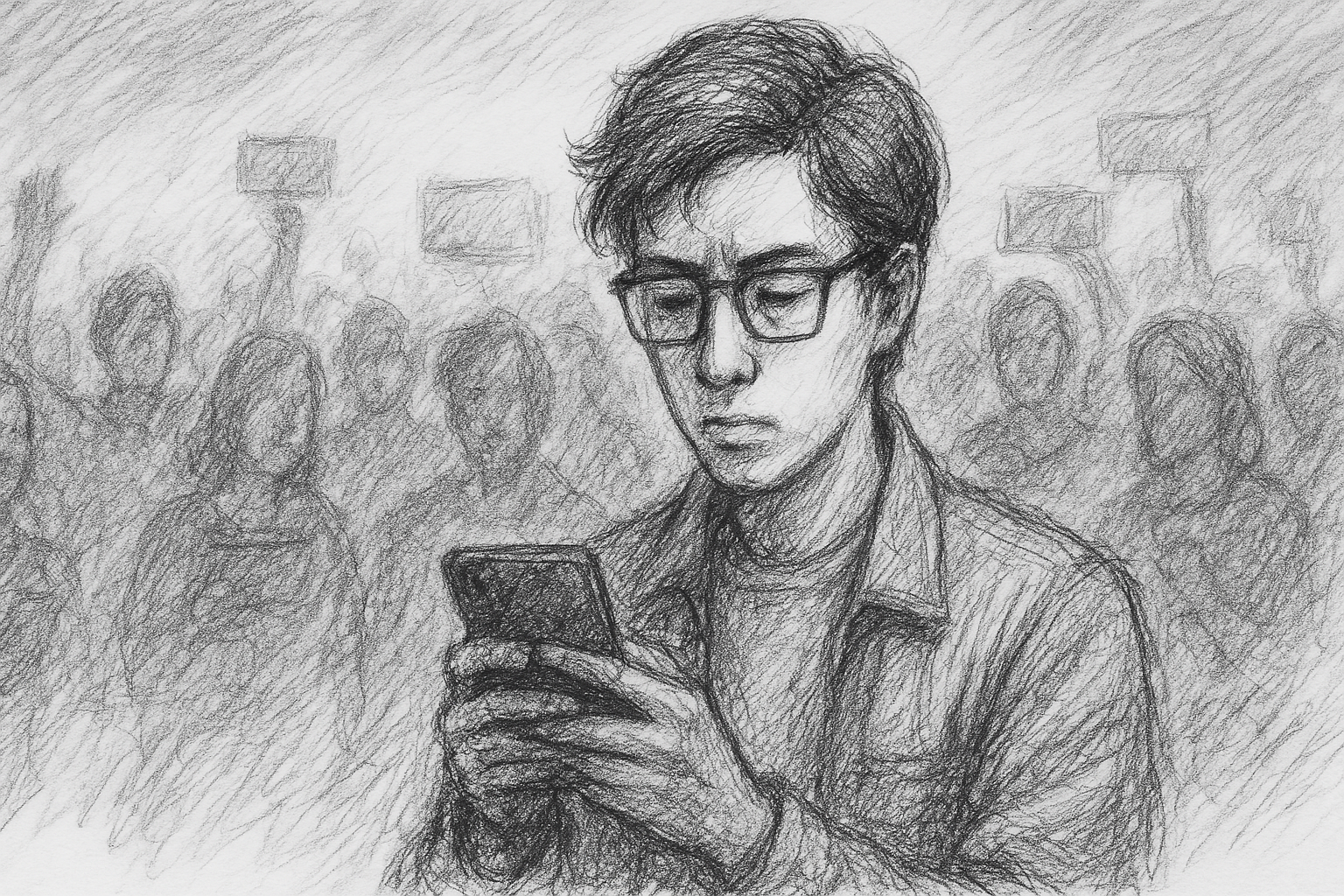The ViruSs storm and our obsession with scandal
Welcome to Words on the Street, where everyday headlines collide with bigger questions.
THE HANOI TIMES — ViruSs, a musician and streamer, recently caused a stir on Vietnamese social media by hosting livestreams about his past relationships. These sessions weren't just viral, they were everywhere. But perhaps the more intriguing question is not what he said, but why we all watched.

My impression of ViruSs had always been opposite scandalous. Back then, he struck me as nerdy, disciplined, and rather academic. So to see him now at the center of a livestream drama was surreal. Even my mother, who's 54, asked me about "this ViruSs situation. That's when it hit me: this isn't just a Gen Z buzz. It's a widespread spectacle."
It starts with the crowd effect. One person watches, shares, comments, and suddenly, everyone’s talking. Group chats explode. Even those who wouldn't normally care, like me, feel the pressure to join in, just to keep up. Then comes FOMO, the fear of missing out. In the age of social media, if you're not in the loop, you're out of sync.
What made this particular drama spread even faster was how people personalized it. It wasn't just ViruSs story, it became a mirror. Many saw pieces of their own experiences in the mess. Some defended him, others criticized. But most importantly, everyone joined the conversation. People made memes, spliced clips together, and added sound effects. There were remixed audio tracks, parody videos, and reaction livestreams. Inside jokes flew faster than the actual facts. Normally, what began as personal content quickly morphed into a public performance.
Then came the ripple effect. As the ViruSs controversy took center stage, it reignited interest in other celebrity scandals. Past relationship dramas, old screenshots, and forgotten interviews resurfaced. In the digital age, nothing ever really dies. It just waits for the right hashtag. Meanwhile, a rapper once romantically linked to ViruSs dropped a track that many saw as a diss song aimed directly at him. The lyrics were bold, emotional, and brutally pointed. And guess what? It went viral too, hitting the top trending charts not only in Vietnam, but in several Asian countries.
Quotes from the livestreams - some heartfelt, some absurd - became part of the online lexicon. They popped up in memes, TikTok audios, and even everyday conversations. One phrase in particular, originally uttered in frustration, somehow became a trend, used half-seriously, half-ironically by people who probably hadn't even seen the original stream. That's how virality works. It doesn't require context, it just requires momentum.
But beneath all the noise is a quieter, more uncomfortable truth. We are consuming more content than ever before, but thinking less about it. The term "brain rot" became popular in 2024 for a reason. Our digital diets are saturated with emotionally charged, nutrient-poor content. We doomscroll. We double-click. We scroll. But we rarely stop to think.
The ViruSs scandal illustrates a broader shift. We are drawn to the dramatic, the chaotic, the unfiltered. And in the process, we often blur the line between real and performance, truth and perception. Online fame has become more powerful than expertise. I'm not saying KOLs are replacing experts, but let's face it: a viral livestream often reaches more people than a thoughtful essay or research paper. That doesn't mean it's better. It just means it's louder.
Still, it's worth reminding ourselves that we don't know the whole story. These are human relationships. Complex, emotional, multilayered. What we see are fragments-selected, edited, maybe even rehearsed. It's easy to form an opinion. Much harder to understand the context. And perhaps impossible to get it right.
That's why I hesitate to jump on the outrage bandwagon. Everyone has their side. Everyone thinks they know what really happened. But how much of that certainty is built on actual insight, and how much is just the algorithm feeding us what we already want to believe?
In the end, this isn't just about a streamer. It's about us. How we consume, how we react, and how we let content shape our moods, our opinions, and even our relationships. Are we building informed perspectives, or are we just feeding off the latest trendy mess?
There's nothing wrong with entertainment. But when scandal trumps substance, when gossip drowns out thought, we have to ask: who's really in control? Us, or the machine?
One thing is clear. The content we consume is a reflection of who we are, and maybe even who we're becoming. If we don't slow down and filter what we engage with, someone else will decide what stays on our screen. And what stays in our heads.












